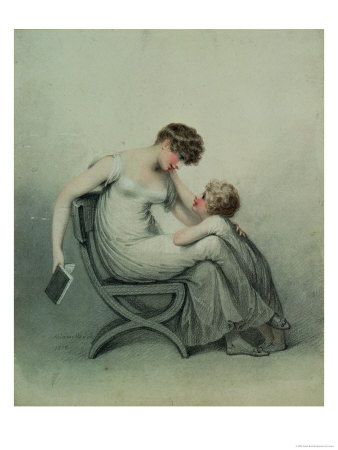Think about how you responded the last time your preschooler asked for your attention. Were you busy with something else so you ignored him? Did you listen for a few seconds, only to have your thoughts wander? Or did you focus 100 percent of your attention on your preschooler?
Of course, preschoolers don’t come straight out and ask for attention. They may convey this need by asking you to play a game or read a book. They might whine or tease a sibling. If a preschooler is really desperate to get attention for a parent or adult, he might even ignore commands to stop a certain behavior or throw a temper tantrum.

With all the responsibilities parents have, it is easy to forget that preschoolers not only want our attention, but they need it. Think about how you feel when you bring up an important issue, only to have your spouse occasionally nod in agreement while reading the newspaper. On the other hand, how does it feel to have someone hang on your every word?
What is a GEM?
Table of Contents
Genuine Encounter Moments (GEMs) are one way to share focused attention with your preschooler. A technique from Kathryn J. Kvols’ book, “Redirecting Children’s Behavior,” GEMs help preschoolers feel “acknowledged, important, cared for, and valuable.”
The goal of a Genuine Encounter Moment is for the parent and preschooler to fully engage with each other, from the heart. Kneel down to your preschooler’s level, look him in the eye, gently touch him and listen to what he says.
GEMS can be used to take a break from a hectic routine, calm a worried child or diffuse a potentially frustrated child. The conversation should not become a lecture or lesson but serve as a loving affirmation.
This is an effective communication tool for preschoolers because it not only conveys love and acceptance but also reassures the child that what is important to him is important to the parent. GEMs also teach preschoolers how to identify what they want, how to ask for it and how to negotiate.
How to use GEMs
Here is an example of a Genuine Encounter Moment with a preschooler who repeatedly tries to gain his mother’s attention when she’s on the telephone.
The mother kneels in front of the preschooler with her hands on his shoulders and looks him in th eye. She says, “I understand you want me to play a game with you right now, and it is hard for you to wait until I’m off the telephone. I won’t be able to play until I finish making this doctor’s appointment. If you read a book while I’m on the phone, I’ll finish the call and then we can play the game.”
The mother has named and acknowledged the preschooler’s frustration in waiting while explaining what she needs. She then offers a compromise and sets a specific time for when she will play with the preschooler.
Preschoolers usually misbehave to convey an unmet need. They might be bored, hungry, tired or frustrated. It can also be a signal that they need some undivided attention from the most important people in their world – Mom and Dad. Use Genuine Encounter Moments throughout the day to let your preschooler know they are equally important to you.
Source
Kvols, Kathryn J. “Redirecting Children’s Behavior.” Parenting Press, Inc. 1998. pp. 25-26. Retrieved 21 December 2007.
